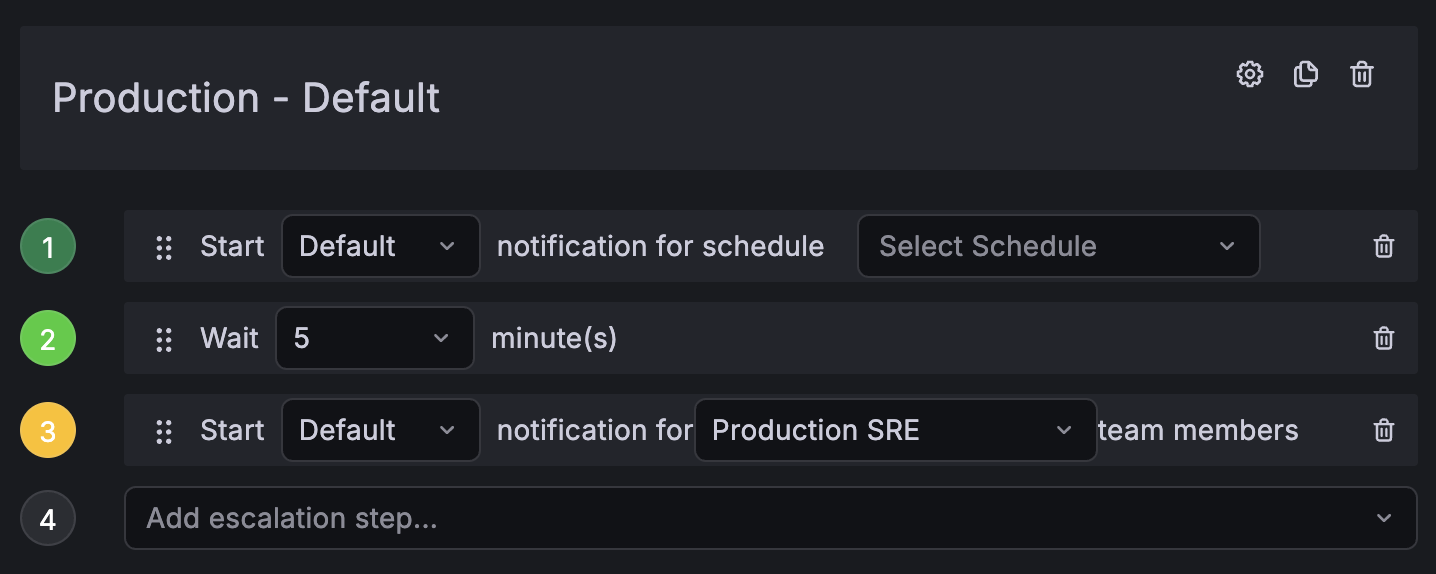Create an escalation chain
In this milestone, you create a basic escalation chain as the next step of your alert flow.
Escalation chains define a sequence of notification steps for Alert groups: who gets notified, when they get notified, and what to do if an Alert group remains unacknowledged. A well-designed escalation chain ensures timely attention from the right people while avoiding unnecessary noise.
For this example, you configure the following escalation chain:

To create an escalation chain, complete the following steps:
- In the IRM navigation menu, click Escalation chains.
- Click + New escalation chain.
- In Name, enter a descriptive name (for example,
Production - Default). - (Optional) Assign the chain to a team.
- Click Create Escalation Chain.
Configure the first step (schedule placeholder):
- Click Add escalation step.
- Select Notify users from on-call schedule.
- Set the notification method to Default or Important.
- Leave Select schedule empty. You attach the schedule in a later milestone.
Note
Default vs. Important notifications: When configuring escalation chains that notify users, decide whether to send notifications via their Default or Important notification rules.
This decision depends on factors such as the type of alerts routed to the escalation chain (critical and time-sensitive vs. warning) and team response expectations. Maintain a shared definition of which alerts warrant Important rules.
If you are not sure which to pick, set Default for now and update it later. You learn more about these rule sets in a later milestone.
Configure a wait and escalation step:
- Click Add escalation step and select Wait.
- Set Wait time to
5 minutes. - Click Add escalation step and select Notify all team members (or another escalation action).
- Select a broader team (for example,
Production SRE). - Set the notification method to Default or Important.
Associate the escalation chain with the integration:
- Click Integrations.
- Open your Grafana Alerting integration.
- Expand the Default route in Routes.
- In Trigger escalation chain, select the chain (for example,
Production - Default).
IRM now routes alerts from this integration to the specified escalation chain.
In the next milestone, you create an on-call schedule for automatic notification to the current responder.
At this point in your journey, you can explore the following paths:
